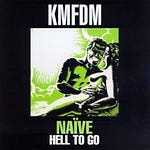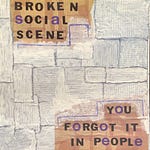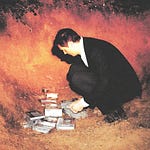It’s early 1995, and you’re a 20-year-old folk singer living in a van by the Pacific Ocean. The charts are ruled by Soundgarden and Stone Temple Pilots. MTV is blasting Smashing Pumpkins. And you’re about to release an album full of delicate acoustic ballads that critics will call “a bad folky joke to end all bad folky jokes.”
What could possibly go wrong?
For Jewel Kilcher, everything went spectacularly right—eventually. Pieces of You would become one of the most unlikely success stories of the ‘90s, selling 12 million copies in an era when sensitive singer-songwriters were supposed to be extinct. But the journey from van to stardom wasn’t instant. It was a masterclass in perseverance, and a testament to the power of authenticity in a world obsessed with authenticity.
From Homestead to Heartbreak
The story begins in Alaska, where Jewel’s childhood reads like something from a different century. Born in Utah but raised on her grandfather’s homestead in Homer, Alaska, she grew up in a world without running water, where survival meant milking cows at dawn and walking two miles in darkness to catch the school bus. Her grandfather Yule had helped draft the Alaska State Constitution after emigrating from Switzerland; her grandmother Ruth had given up her opera career to move to the wilderness.
This wasn’t some romanticized frontier lifestyle—it was genuine hardship. After her parents’ divorce when she was eight, Jewel found herself performing five-hour sets in honky-tonks and bars with her father, a man struggling with PTSD and alcoholism. The performances weren’t charming father-daughter bonding moments; they were survival tactics.
By 15, she’d moved into her own cabin, paying rent and working multiple jobs. The trajectory from there seems almost inevitable: a partial scholarship to the Interlochen Arts Academy in Michigan to study opera, then a move to San Diego where she’d busk on street corners and play the Inner Change coffeehouse.
The Coffee Shop Revolutionary
What happened at the Inner Change in Pacific Beach was the birth of a phenomenon. Jewel had developed something rare: a completely authentic voice that could transform a room full of indifferent strangers into believers. She’d written her first song, “Who Will Save Your Soul,” at 16 while busking her way through North America. The song was a scathing critique of celebrity culture and materialism, wrapped in a deceptively simple folk melody.
When an Atlantic Records executive and manager Inga Vainshtein caught one of her Thursday night performances, they knew they’d found something special. The bidding war that followed resulted in Jewel recording at Neil Young’s Broken Arrow Ranch with producer Ben Keith, surrounded by some of the most legendary session musicians in rock history.
The Impossible Slow Burn
Here’s where the story gets truly remarkable: Pieces of You was released in February 1995 and completely flopped. In an era when albums lived or died by their first-week sales, Jewel’s debut sat dormant for over a year. The first single, “Who Will Save Your Soul,” wasn’t even released until April 1996—14 months after the album’s release.
Radio programmers hated it. Critics dismissed it. The cultural moment seemed all wrong. As Jewel herself put it, “I was laughed out of every radio station. Radio programmers hated me, journalists hated me. Culture was not thinking I should do well.”
But then something magical happened: Bob Dylan invited her to tour with him as his opening act. Suddenly, this young woman with an acoustic guitar was playing for audiences who understood the power of storytelling through song. The album began its slow climb toward phenomenon status.
The Voice That Changed Everything
What made Pieces of You work wasn’t just the songs—it was Jewel’s extraordinary vocal instrument. Here was a trained soprano who could shift from breathy vulnerability to powerful belting within a single line. Her voice was almost schizophrenic in its range, capable of embodying different characters and emotions with startling authenticity.
The album’s production, sparse and restrained, showcased this vocal versatility perfectly. Many tracks were literally recorded live at the Inner Change, complete with audience applause. It was the antithesis of the heavily produced alternative rock dominating the airwaves, and that restraint became its secret weapon.
Cultural Earthquake in Slow Motion
By 1997, Pieces of You had become an unstoppable force. “You Were Meant for Me” and “Foolish Games” became massive hits, with “Foolish Games” originally being just a B-side that radio DJs couldn’t stop playing. The album peaked at number 4 on the Billboard 200, but more importantly, it spent two full years on the charts.
The cultural impact was seismic. In an era dominated by masculine aggression and ironic detachment, Jewel offered something radically different: earnest emotion without apology. Songs like “I’m Sensitive” literally declared, “Please be careful with me, I’m sensitive and I’d like to stay that way”. In 1995, this was revolutionary.
Critics who had initially dismissed her as “wimpily produced” and “cringe-inducing” were missing the point entirely. Jewel wasn’t trying to be cool—she was trying to be real. And for millions of listeners, particularly young women, that realness was exactly what they needed.
The Blueprint for Authenticity
Pieces of You didn’t just succeed; it created a template that influences artists to this day. The album’s DNA can be heard in everyone from Taylor Swift to Olivia Rodrigo, both of whom have acknowledged Jewel’s influence. The coffeehouse-to-superstardom narrative became a new archetype for the music industry.
But perhaps most importantly, the album proved that authenticity could triumph over manufactured coolness. In an industry increasingly obsessed with image and irony, Jewel’s success demonstrated that genuine emotion and honest storytelling could still move mountains—or at least move 12 million albums.
Looking back 30 years later, Pieces of You stands as a time capsule of a very specific moment when the music industry was changing, when female voices were demanding to be heard, and when a young woman from Alaska proved that sometimes the most radical act is simply being yourself.
Want to dive deeper into the making of this landmark album? The full conversation exploring Jewel’s incredible journey from van life to diamond sales, complete with insights into the songs that changed everything, awaits in this episode of the Dig Me Out podcast.
Songs in this Episode
Intro - Who Will Save Your Soul
32:20 - Foolish Games
38:32 - Near You Always
42:37 - I'm Sensitive
Outro - You Were Meant For Me















